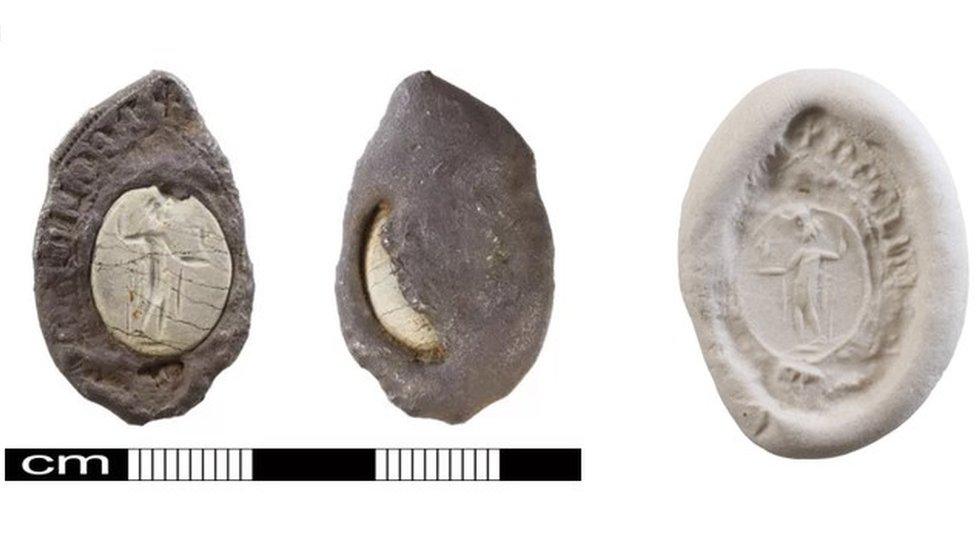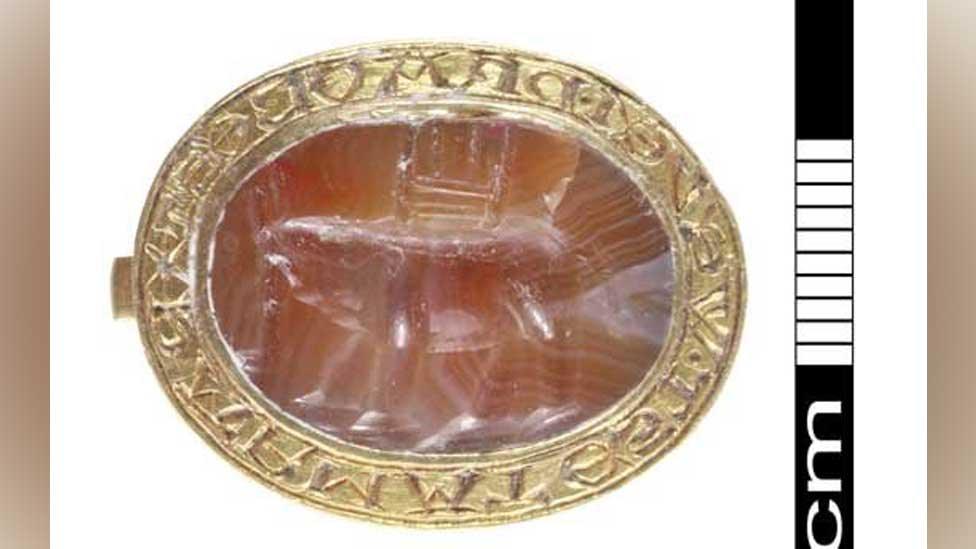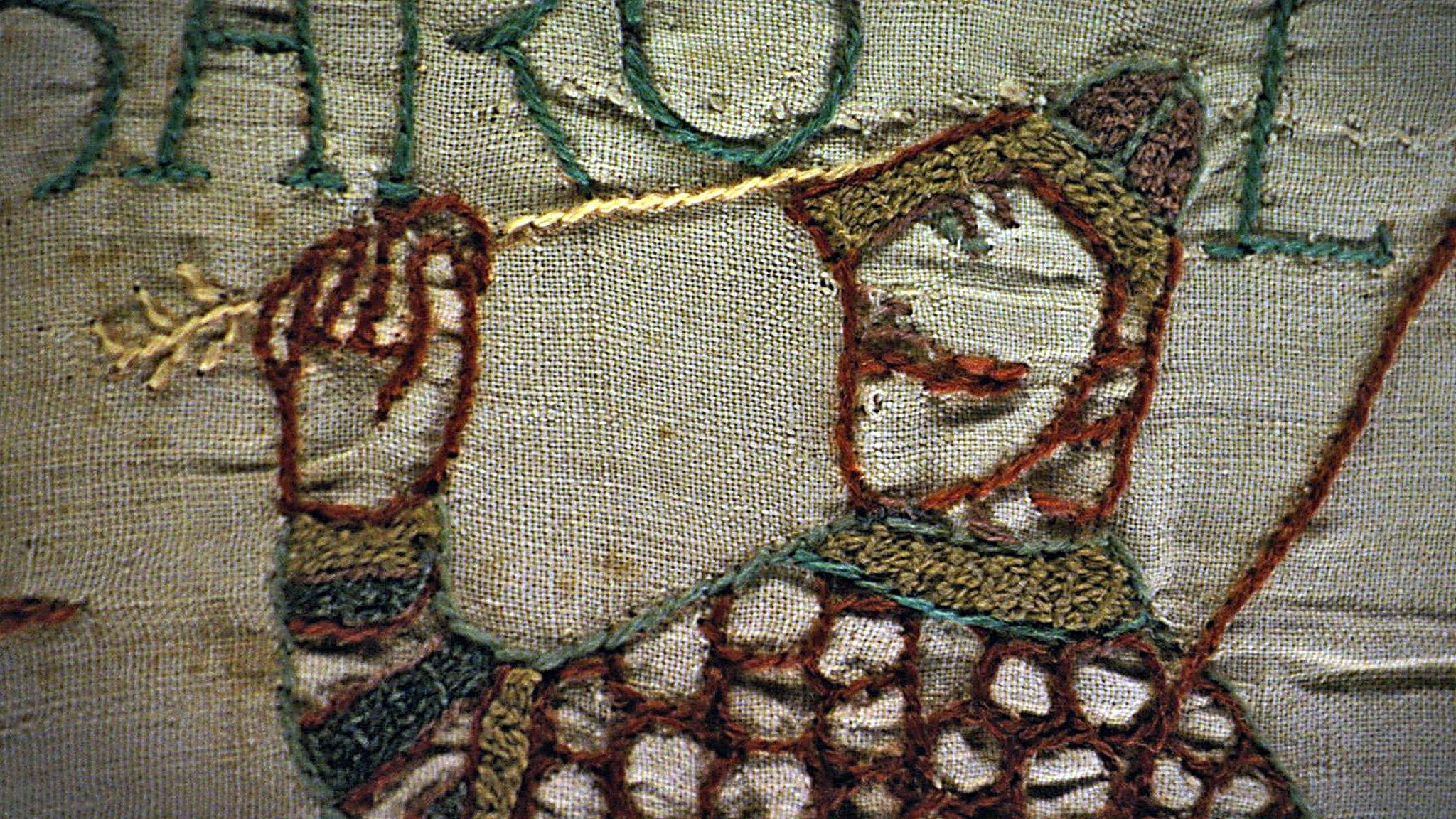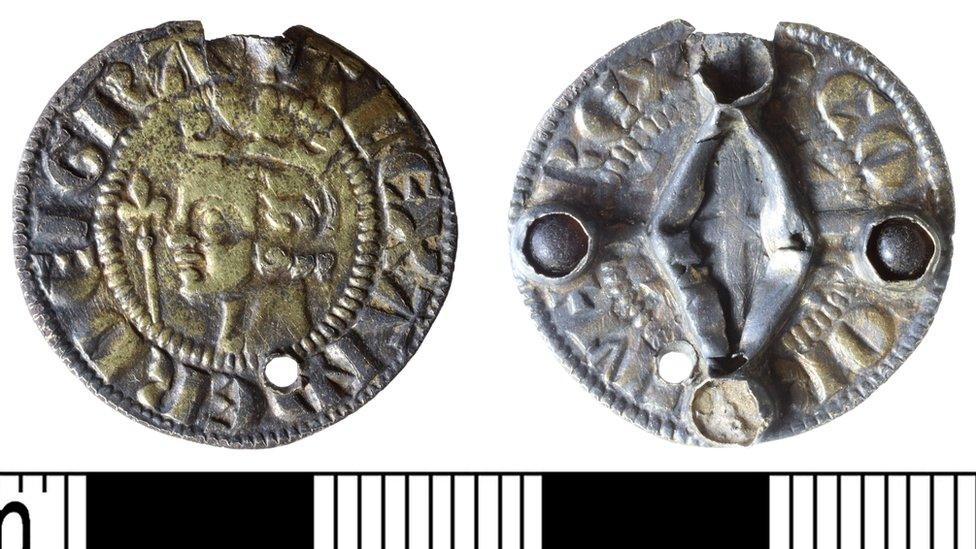Norfolk silver seal discovery unlocks Roman mystery
- Published

The silver seal matrix - with an impression on the far right - would have been used to authenticate documents
The medieval aristocrat who marked documents with a silver seal was possibly unaware it was set with a Roman-carved gem, an expert has said.
The 13th or 14th Century seal containing an intaglio was found badly burned in Gayton, Norfolk, in August.
Norfolk finds liaison officer Helen Geake said it told "quite a story".
"Would people have known that it was Roman - was it kept all those centuries and re-set in silver, or was it a chance find?" she said.
The intaglio is now an opaque grey, but was "almost certainly carnelian", a brown-red gemstone.
It depicts a winged figure, believed to be the god Mars holding a spear, with Victory to his right, a report on the find states.
Ms Geake said: "I think they [Medieval people] probably would have thought it was from the Mediterranean and the Crusades and not Roman, as in Roman Britain," added Ms Geake.
The silver seal matrix which encases it would have been flat but due to heat damage has a lumpy, rounded reverse with a hole, revealing the back of the intaglio.
Parts of the edges are missing, making the inscription tricky to decipher - although it does not appear to show a generic motto, Ms Geake said.
"They were primarily used as a way to sign a document, to authenticate it, probably at a time when you had someone to do the writing for you," she added.
"Somebody with this calibre of seal was aristocratic and very high up.
"It's still a mystery who that might have been, but these belonged to really top people - barons, bishops, the top 1%.
"If only we could read it; perhaps there is a Latin scholar out there who can."

A gold seal, found near King's Lynn in June, contained a gemstone, probably carnelian, carved with an elephant
More than 50 seal matrixes have been found nationwide, 30 of them silver, with this the fourth to be found in Norfolk.
The Gayton find, measuring 29mm (1in) by 18.5mm (0.72in), is the only seal matrix that has been burned. It was discovered by a metal detectorist.
"It's very peculiar - was it just an accident, was it lost in the countryside and then got in a heath or forest fire?" said Ms Geake.
"It's seen a lot of action."
Its status as treasure is subject to a coroner's inquest on Monday and Norwich Castle Museum hopes to buy it.

Find BBC News: East of England on Facebook, external, Instagram, external and Twitter, external. If you have a story suggestion email eastofenglandnews@bbc.co.uk, external
Related topics
- Published4 April 2021

- Published26 October 2020

- Published19 September 2020
